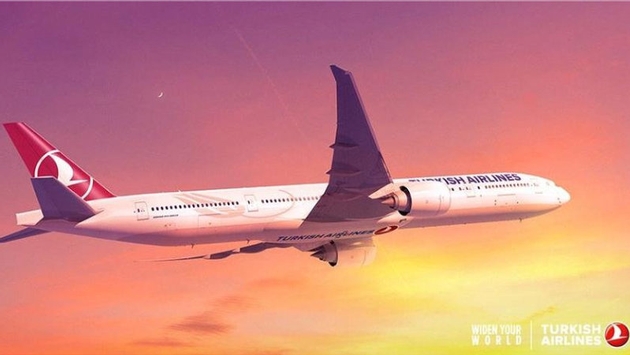By Josh Lew
Turkish Airlines seems to be doing the only thing that it can do after being hit by setback after setback: push ahead with “business as usual.”
Setback after setback
Turkey has suffered several major terror attacks in the past year. For Turkish Airlines, the worst was the attack at its hub at Istanbul’s Ataturk International Airport. After that tragedy, the hub and the airline pushed to get things back to normal, only to have the airport temporarily shut and flights canceled because of the attempted coup earlier this month.
Ataturk went online again rather quickly, with flights resuming within a day after the coup bid. However, foreign airlines still chose to cancel flights, leaving passengers stranded at Ataturk. The FAA opted to bar Turkish Airlines from flying to the United States. Initially, the ban on direct Turkey-US flights was supposed to last for several weeks, but it has since been lifted.
Getting the FAA to drop its ban could be seen as a success for Turkish Airlines, but considering all the damage that has been done to the airline in recent months, it is a very small win.
Unrealized ambitions
Turkish Airlines had been successful at raising its profile in recent years. It appeared on track to realize its goal of joining the Gulf carriers as a quality airline that could offer connecting flights all over the world. Turkish achieved the first part of this goal by remaking its image and earning high marks on airline quality rating surveys. Earlier this month, Skytrax named Turkish the world’s seventh best airline. Anyone who has flown Turkish lately would probably agree with this high ranking.
As the airline expanded its capacity in an effort to become a top choice for connecting international fliers, however, things started to go wrong.
Too much has gone wrong
The coup and the Ataturk attack could certainly be considered a short-term setback. Fliers might opt for other carriers and airports for their next trip, but this kind of image problem usually doesn’t last for the long term. Brussels Airport, for example, is now back online and operating business as usual after the March bombing there.
However, Turkish Airlines has expanded capacity so much that it might not have the luxury of waiting for people to forget the attack and the unrest. Investors are already abandoning the airline, perhaps thinking that too much has gone wrong and Turkish already has too many chips in the pot to turn back.
Can the government help?
Turkish Airlines could be propped up by the government during this difficult time, which would not be unheard of. The Gulf carriers have been able to expand so rapidly because of support from their governments.
One has to wonder, given everything that has happened, if Turkey’s government is even in a position to provide any of this kind of support to its flag carrier. Tens of thousands of people have been either arrested or fired from their jobs because Turkey’s President, Tayyip Erdogan, claims that they were somehow involved in the coup. (The firings included more than 200 Turkish Airlines employees).
It is clear that there is serious opposition to Erdogan’s government and unrest could continue for some time. The post-coup purge has also weakened the army, perhaps leaving the door open for more terror attacks in the future. In short: a lot more could go wrong for Turkey in the near future.
Amidst all this, Turkish Airlines has no choice but to try to move forward. In a recent release, the airline tried to push the “business as usual” idea.
While announcing the complete resumption of flights, the airline also took the opportunity to tout its ability to provide connections for international fliers. “In the wake of the three-month state emergency, Turkish Airlines has announced that all its operations and flights function uninterrupted and will continue to do so. As Turkey’s flag carrier that flies to more countries than any other airline, serving 290 destinations in 116 nations across the globe, Turkish Airlines will continue to make the world closer for all its passengers around the world with its exceptional flight experience.”
Turkey’s tourism numbers have fallen in the wake of the recent violence and unrest. For connecting fliers, the Gulf seems like a better option than having to fly through Istanbul. So who would still fly Turkish Airlines?
According to View from the Wing columnist Tim Leff, now is a great time to use miles to get a transatlantic business class flight on Turkish. Leff pointed out “fantastic availability for business class awards on Turkish Airlines long hauls between the US and Turkey.” He also mentioned Ataturk’s palatial business class lounge and Turkish’s practice of providing hotels for passengers who have overnight layovers (even if they flew in on economy class).
Irish LCC Ryanair has used the strategy successfully in the past: giving people great deals so that they fly despite their concerns. Ryanair, however, is financially stable. Turkish Airlines is not, so something will have to change (some sort of government bailout) in order for them to use this approach to help survive the present and future turbulence.
For now, though, with its future in doubt, Turkish Airlines can only move push forward and hope that somehow everything works out.
Steele Luxury Travel
www.SteeleTravel.com

